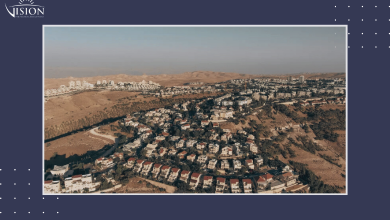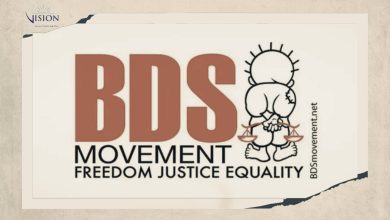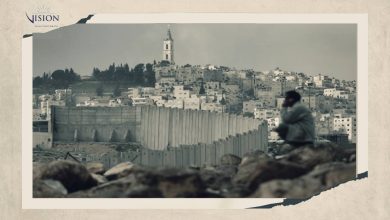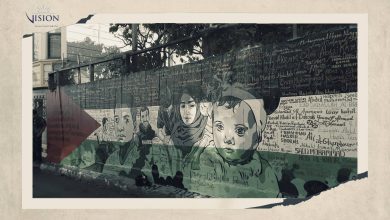The MonthlySkimm: February 2022
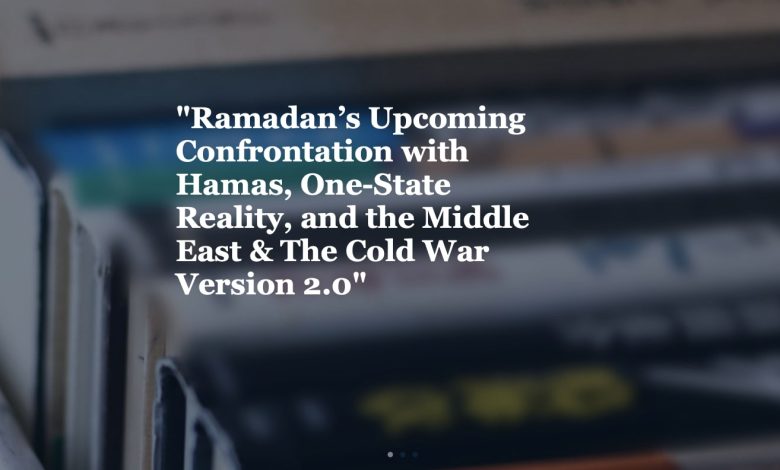
Mohammed Hasan Darkhalil
# Ramadan’s Upcoming Confrontation with Hamas, One-State Reality, and the Middle East & The Cold War Version 2.0
Ramadan’s Anticipated Huge Confrontation with Hamas
In an attempt to offer an initiative for convening an international conference on solving the conflict, the Institute for National Security Studies presented a simulation for the scenarios in Gaza(INSS, 2022). The simulation presented a scenario where Hamas initiates a move of riots in Ramadan that would be developed into a wave of violence and lunching rockets from Gaza, Syria, and Lebanon along with demonstrations in Jordan supporting the Palestinians. The insights of the simulation concluded that the political process will not take place for two reasons. First, the Palestinian and Israeli sides have lost hope in negotiations. Second, the international community and the US are losing interest in the region and its conflicts. Accordingly, the multi-front escalation will impose itself. Finally, they concluded that the scene would include new untried idea initiated by the UAE, China, and Egypt. The proposal from these countries will be backed by investment in the economic development and infrastructure.
Facts on the Ground are Pushing towards a One-State Reality
Udi Dekel and Noa Shusterman argue that facts on the ground are pushing towards a one-state realty (Dekel, 2022). They highlighted the main factors contributing to reach this end in “The Palestinian Arena: The Need to Arrest the Slide into a One-State Reality”:
- The narrowness of political horizons.
- The “deals” between Israeli government and Hamas against the Palestinian Authority’s wishes, which weaken its position as a partner for any future agreement.
- The continuity and legitimization of settlement, which make the process of separation between the two population more difficult to achieve.
- The increase of Israeli work permits for the Palestinian workers and the direct employment by employers in Israel.
- The unification and connection of transportation grids, communication, water, and electricity between the two population, in which the mutual dependency is getting higher.
- Preventing open independent transit between Jordan and the Palestinians.
- The Israeli perception that territories west of Jordan are as a unified security zone under the Israeli government control.
The Cold War: Version 2.0
The version 2.0 of the Cold War would not be similar to the first one. Oded Eran and Zvi Magen confirm that a united front against the United States will be formed in the second version (Eran, 2022). The new order will make it much more complicated for Israel to act on a middle ground in order to balance its political, security, and economic relations with the US versus China and Russia. The ties between Israel and Russia are understood by Washington, but there is less tolerance about the cooperation between Israel and China, particularly in the economic sphere.
Reapproaching Israeli Foreign Policy in a Changing World Order
In the light of big changes in the world order; post-Covid, the competition between China and the US, climate changes, and the gradual decrease of the international community’s interest in the Middle East, a group of pro-Israeli writers have recommended to the Israeli government in “The International System: One World, Two Worldviews, and Greater Divisiveness” to cope with the following changes (INSS, 2022):
- Israel should maximize its activities as a stabilizing power to fill in the vacuum left by the minimized international involvement in the Middle East.
- Globally, Israel should situate its position as a key partner on international issues, such as technology and climate.
- To maintain relationships with global powers without undermining its relations with the USA and to be careful not to trigger the American sensitivities over the cooperation with EU, China, and Russia.
- To maximize its endeavors for maintaining bipartisan American backing.
The United States has increasing concerns about the relations between Israel and China. Assaf Orion recommends the Israel government to adopt a policy which select bilateral activity. In his policy analysis “Beyond Chastity Belt and Road” published by “The Washington Institute” (Orion, 2022), he illustrated that such a policy can work when Israeli relations and ties with China is acceptable in a context where the US-Israeli alliance is irreplaceable. Israel will be strategically influenced by the Great Power competition, regardless to its ally with the US, China is not seen as an enemy to Israel, and it is not intending to be. Orion suggests that Israeli policy must combine the support to US with innovation, cyber, defense and technology, while having safe and selective economic relations with Beijing. Furthermore, while the United States is more focusing on the Indo-Pacific, Israel should fill the void in the Middle East.
How Russian-Ukrainian Crisis Would Influence the Middle East?
In the “Russian Reverberations in the Middle East” Paul Salem and Brian Katulis explained the reflections of the Ukraine-Russia crises on the Middle East as follows (Salem, 2022):
Energy: The global energy prices would significantly increase. This would be in favor of MENA energy exporters, where the West would look for alternative sources of energy in case the Russians cut off energy to some parts of Europe.
Food Security: Ukraine’s half wheat exports imported by the MENA region, furthermore, Russia provides enough amount of wheat to the region. The disruptions of wheat supplies could hit food import dependent countries such as Egypt, Libya, Yemen, and Lebanon.
In the “Hedging, Hunger, and Hostilities: The Middle East After Russia’s Invasion of Ukraine”, Jon Alterman tries to answer some questions relevant to assessing the future of the Middle East post-Russian invasion (Alterman, 2022). Iran and Syria are supportive to the Russian operations. Interestingly, United States partners and allies have shown a cautious attitudeexcept Israel, which decided to condemn the invasion from the very beginning. Gulf states as fellow energy producers and potential partners to Russia. Regional power, for Alterman, are trying to balance their attitudes, while keeping strong ties with the United States, they avoid any confrontation with Russia and China.
The region may probably witness renewed protests and instability as a consequence to the high energy and food prices. Furthermore, the region would witness a kind of hybrid warfare, such as using disinformation, cyber, militias and different types of weapons Moscow is using in Ukraine and other parts of the world short of conventional military confrontation.
MonthlySkimm is a narrative brief of the political opinions and analysis conducted by considerable think tanks about the Palestinian-Israel conflict.
Reference:
INSS. (2022). How Determined are the World Powers to Convene an International Conference to Resolve the Israeli-Palestinian Conflict? An INSS Simulation. Retrieved from Institute for National Security Studies: https://www.inss.org.il/publication/inss-simulation-madrid-2/
Dekel, U. (2022). The Palestinian Arena: The Need to Arrest the Slide into a One-State Reality. Retrieved from The Institute for National Security Studies: https://www.inss.org.il/wp-content/uploads/2022/02/Palestinian-Arena.pdf
Eran, O. (2022). Russia and China: On the Same Side in Cold War 2.0. Retrieved from The Institute for Natonal Security Studies: https://www.inss.org.il/publication/russia-china/
INSS. (2022). The International System: One World, Two Worldviews, and Greater Divisiveness. Retrieved from The Institute for National Security Studies: https://www.inss.org.il/wp-content/uploads/2022/02/International-System.pdf
Orion, A. (2022). Beyond Chastity Belt and Road. Retrieved from The Washington Institute: https://www.washingtoninstitute.org/policy-analysis/beyond-chastity-belt-and-road-us-israel-relations-age-great-power-competition
Salem, P. (2022). Russian reverberations in the Middle East. Retrieved from Middle East Institute: https://www.mei.edu/blog/special-briefing-russian-reverberations-middle-east
Alterman, J. (2022). Hedging, Hunger, and Hostilities: The Middle East after Russia’s Invasion of Ukraine. Retrieved from Center For Strategic & International Studies: https://www.csis.org/analysis/hedging-hunger-and-hostilities-middle-east-after-russias-invasion-ukraine


